Related Research Articles

A think tank, or policy institute, is a research institute that performs research and advocacy concerning topics such as social policy, political strategy, economics, military, technology, and culture. Most think tanks are non-governmental organizations, but some are semi-autonomous agencies within government or are associated with particular political parties, businesses or the military. Think-tank funding often includes a combination of donations from wealthy individuals and personal contributions, with many also accepting government grants.

The Nationalist Party, also known as the National Party was an Australian political party. It was formed on 17 February 1917 from a merger between the Commonwealth Liberal Party and the National Labor Party, the latter formed by Prime Minister Billy Hughes and his supporters after the 1916 Labor Party split over World War I conscription. The Nationalist Party was in government until electoral defeat in 1929. From that time it was the main opposition to the Labor Party until it merged with pro-Joseph Lyons Labor defectors to form the United Australia Party (UAP) in 1931. The party is a direct ancestor of the Liberal Party of Australia, the main centre-right party in Australia.

Mark William Latham is an Australian politician and media commentator, currently serving as a member in the New South Wales Legislative Council. He previously served as the leader of the Australian Labor Party (ALP) and leader of the opposition from December 2003 to January 2005, leading the party to defeat at the 2004 federal election.
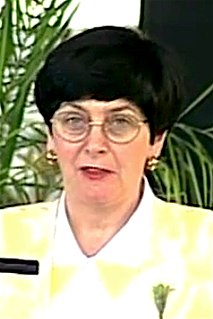
Kay Christine Lesley Patterson is a former Australian politician. She was a Liberal member of the Australian Senate from 1987 to 2008, representing the state of Victoria.
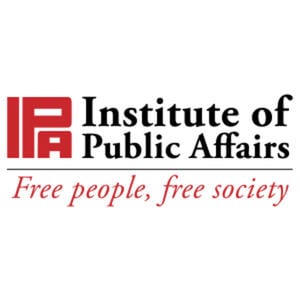
The Institute of Public Affairs (IPA) is a conservative non-profit free market public policy think tank based in Melbourne, Victoria, Australia. It advocates free market economic policies such as free markets, privatisation, deregulation of state-owned enterprises, trade liberalisation, deregulation of workplaces as well as climate change denial, abolition of the minimum wage, criticism of socialism, and repeal of Section 18C of the Racial Discrimination Act 1975.

Sir John Greig Latham GCMG QC was an Australian lawyer, politician, and judge who served as the fifth Chief Justice of Australia, in office from 1935 to 1952. He had earlier served as Attorney-General of Australia under Stanley Bruce and Joseph Lyons, and was Leader of the Opposition from 1929 to 1931 as the final leader of the Nationalist Party.
People Power was a populist political movement in Australia that was federally registered as a political party in March 2006. The party contested its first election at the 2006 Victorian state election and was de-registered federally in December 2006.

Stephen Mayne is an Australian Walkley Award winning journalist, local government councillor, and self-described shareholder activist.
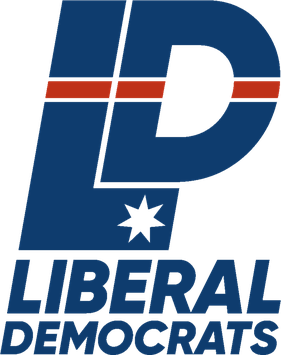
The Liberal Democratic Party, shortened as LDP, Liberal Democrats, or Lib Dems, is an Australian political party founded in Canberra in 2001. The party espouses smaller government and supports policies that are based on classical liberal, libertarian principles, such as lower taxes, opposing restrictions on civil liberties, decentralisation, utilising nuclear energy, and the relaxation of smoking laws.
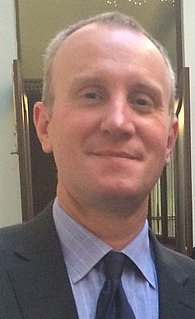
John Roskam is the executive director of the Institute of Public Affairs (IPA), a libertarian think tank based in Melbourne, Australia.
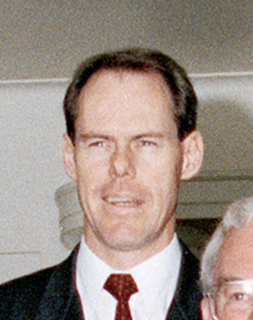
Gary Thomas Johns is an Australian writer and former politician. He was a member of the House of Representatives from 1987 to 1996, holding the Queensland seat of Petrie for the Australian Labor Party (ALP). He served as a minister in the Keating Government.
Gail Elizabeth Gago is a retired Australian politician, and a member of the Labor Party in the South Australian Legislative Council from the 2002 election until her retirement in 2018.
Cormack Foundation Pty. Ltd. is an Australian investment company established to hold for the Liberal Party of Australia and associated entities. Named in honour of former Senate President Magnus Cormack, the company was set up in 1988 with the proceeds of $15 million from the sale of former Melbourne radio station 3XY, the broadcast licence of which had been originally licensed to Liberal Party precursor the United Australia Party. 3XY was sold in 1986 for $15.75 million.
Political funding in Australia deals with political donations, public funding and other forms of funding received by politician or political party in Australia to pay for an election campaign. Political parties in Australia are publicly funded, to reduce the influence of private money upon elections, and subsequently, the influence of private money upon the shaping of public policy. After each election, the Australian Electoral Commission distributes a set amount of money to each political party, per vote received. For example, after the 2013 election, political parties and candidates received $58.1 million in election funding. The Liberal Party received $23.9 million in public funds, as part of the Coalition total of $27.2 million, while the Labor Party received $20.8 million.

Sir Robert Archdale "Archie" ParkhillKCMG was an Australian politician who served in the House of Representatives from 1927 to 1937. He began his career in politics as a campaign director for the Commonwealth Liberal Party and Nationalist Party. He later joined the new United Australia Party in 1931, and served as a minister in the Lyons Government between 1932 and 1937.
This is a list of candidates for the 2010 Victorian state election. The election was held on 27 November 2010.

Timothy Robert Wilson is a former Australian politician and a member of the Liberal Party of Australia who served as the Federal Member for Goldstein in the Australian House of Representatives from 2016 to 2022. Wilson served as the Chair of the Standing Committee on Economics from 2018 to 2021 and as the Assistant Minister to the Minister for Industry, Energy and Emissions Reduction from 2021 to 2022. In the 2022 Australian federal election, Wilson lost his seat to independent candidate Zoe Daniel.
Voice for the West was a minor political party in Australia. It was registered as a political party by the Victorian Electoral Commission in 2014 and ran candidates representing western Melbourne electorates in the 2014 Victorian state election.
Dustin Raffaele Halse is an Australian politician. He has been a Labor Party member of the Victorian Legislative Assembly since November 2018, representing the seat of Ringwood. On 24 November 2021, Halse shared publicly that he would not be recontesting his seat in the 2022 Victorian state election.
References
- ↑ "Steering Committee". 10 October 2018.
- ↑ Chip Le Grand for The Australian. 4 December 2012. Gillard style already in place when the ratbag lefties met in 1984
- ↑ Vern Hughes, Opinion article, The tragedy of Mark Latham, former thinker , The Age, 13 December 2004. Retrieved 14 October 2014
- ↑ Mark Latham, The Latham Diaries, (2005) Melbourne University Press via Google Books. Retrieved 14 October 2014
- 1 2 "Spinning around". The Age .
- ↑ "Stateline Victoria". Abc.net.au. Retrieved 6 September 2013.
- ↑ "Mayne returns to strife-prone party as chief axed". The Australian .
- ↑ "New political party for parents, families and carers".
- ↑ "State Election 2014 results". Victorian Electoral Commission. Retrieved 29 November 2014.
- ↑ "Senate Results". Australian Broadcasting Corporation .
- ↑ Millar, Royce & Schneiders, Ben. Sydney Morning Herald, 25 August 2013. Free radicals
- ↑ Contributor profile, Institute of Public Affairs website, Retrieved 20 October 2014
- ↑ IPA Review, Vol. 48, No. 2, 1995: 32-38. Institute of Public Affairs
- ↑ IPA Review, Vol. 48, No. 4, 1 January 1996. Institute of Public Affairs
- ↑ Policy Vol. 20 No. 1 Autumn 2004. Centre for Independent Studies